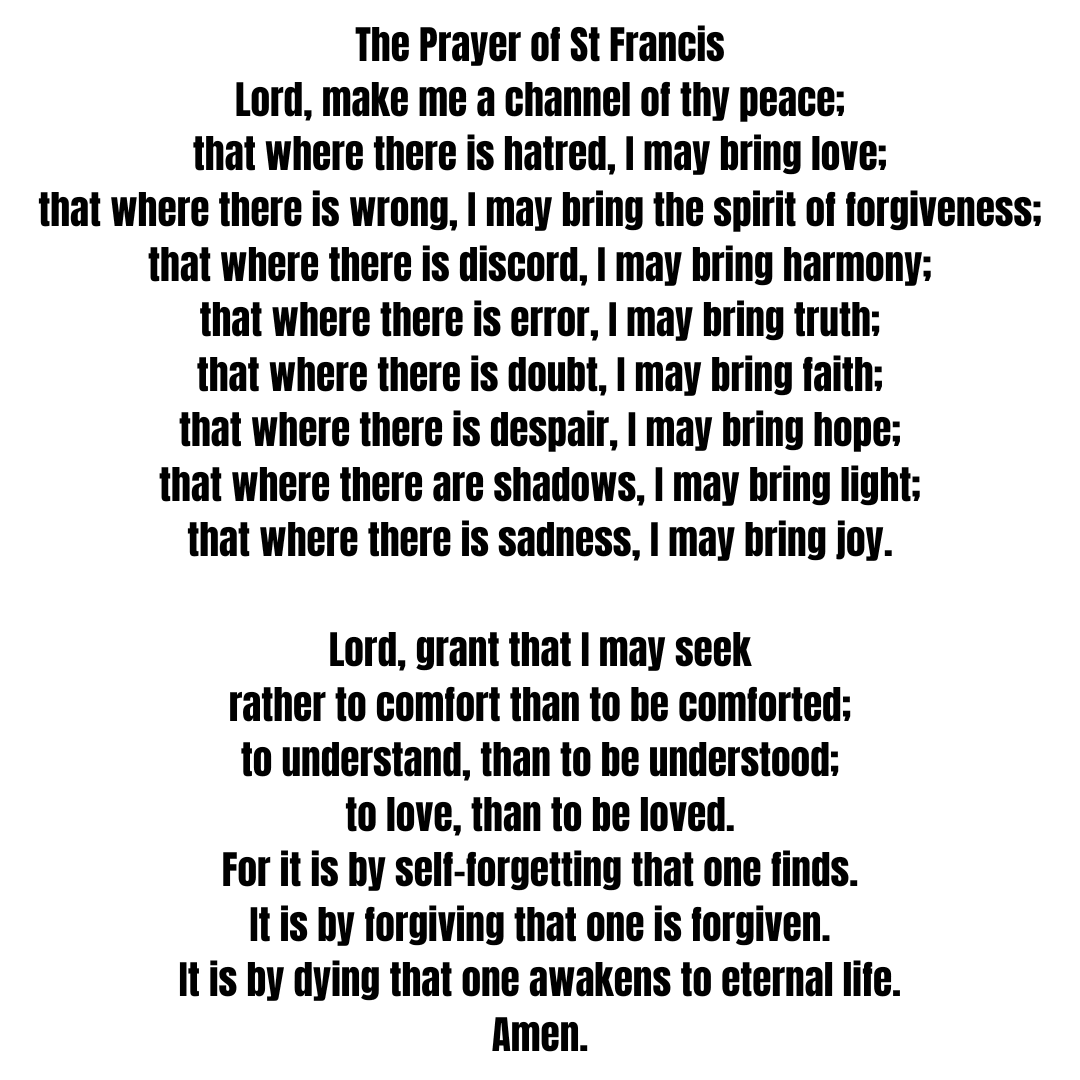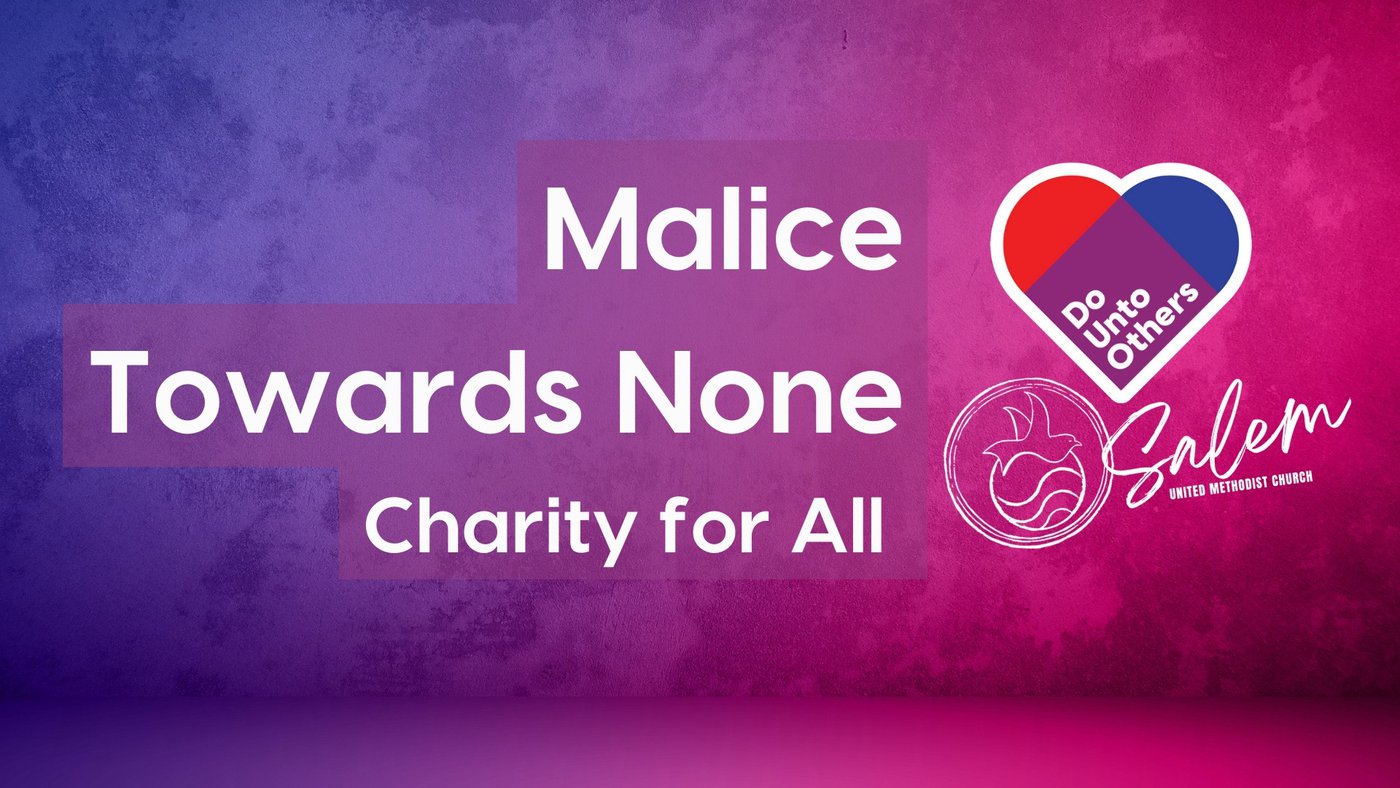Malice towards None, Charity for All
- In a recent gallop poll it was asked among gen z and millennials, what is the most critical issue facing our time?
-Answer: 97% answered the political divide facing our nations
-91% said they would want to be part of the solution
- Most of us want to end this in our country, but politicians are not teaching us how.
- We are not endorsing a candidate or a party - we are taking a deeper look at how our Christian faith should impact our political views, how we
practice politics, and most importantly, how we treat one another heading into an important election
-Martin Luther said, "preach with a Bible in one hand and a newspaper in the other"
- Lincoln’s inaugural address March 4, 1865
-On the steps of the Capital building, President Lincoln gave a 7 minutes speech that shifted the nation;
~2% of the countries population had died - 620,000 people in total
~He stated of the North and South, “Both read the same Bible, and pray to the same God, and each invokes his aid against the other… but let us judge not that we be judged.
~Lincoln did not dismiss the sin of slavery for the sake of unity, he was quite explicit of naming slavery as a sin and a misstep for the America nation. He was however empathetic towards both the north and south of the losses incurred.
“With malice toward none, with charity for all, with firmness in the right, as God gives us to see the right, let us strive on to finish the work we are in, to bind up the nation’s wounds, to care for him who shall have borne the battle, and for his widows and orphans; to do all which may achieve and cherish a just and lasting peace among ourselves and with all nations.” - Abraham Lincoln
-Lincoln’s words are very similar to the words of John Wesley’s sermon on unity
"In essentials unity, in non-essentials liberty, and in all things charity." - John Wesley
- Sociologist tell us today that we are more divided society than we were then
- The Human Condition - a struggle with conflict
-The first human to human conflict we see comes to us in Genesis 4, between 2 brothers; Cain and Abel. It is a story of jealously and resentment. It becomes so heated, that Cain kills Abel.
-Pastor Matt went to Church of the Resurrection, for Leadership Institute (with over 1,500 other church leaders nationwide)
-Worship took place in their sanctuary which houses the world’s largest indoor stained-glass window
Check out Church of the Resurrection Window!
-It illustrates key biblical narratives from left to right, including Cain killing Abel. It is featured because it reminds us of our human condition and teaches us about our impulses... our tendency to resent, to divide, and at times, kill. We all have a bit of Cain in us.
-In the times we live in, we are quick to make assumptions, become resentful, and even hate our siblings.
In the bible: 200 references to war, another 500 to killing, another 40 to murder, and another 100 to violence, and over 100 to hate.
940 references to these all together.
This is why Micah 6:8 says to "seek justice, love mercy, walk humbly with God."
This is why Jesus stated "do unto others as you would have them do unto you" -Matthew 7:12
- All of the 27 books in the new testament addresses conflict
-Jesus said things like "love your neighbor", "love your enemy", and "do unto others"
-James tells us be quick to listen, and slow to anger -James 1:19-20
-1 John 4:20-21 - "Those who say, 'I love God,' and hate a brother or sister are liars, for those who do not love a brother or sister, whom they have seen, cannot love God, whom they have not seen. The commandment we have from him is this: those who love God must love their brothers and sisters also."
- One of the reasons conversations around politics invoke so much discomfort and struggle is because :
-We don’t listen to understand… we listen to get our own next talking point
-There is a story behind everyone’s story; everyone has a lived experience which leads them to the position they hold
We don’t want to get to know people’s story
We don’t want to understand them
We want them to conform to what we understand
-Without the ability to listen to someone else, nothing will be different.
Nothing changes, until something changes. Let it begin with you.
We need to learn to lead with empathy. Empathy is feeling alongside someone else, but are we willing to do that with those we disagree?
Brene Brown's definition of empathy
- The definition of conflict is two ideas occupying the same space
-Conflict is not the enemy; two differing ideas rooted in fruitful dialoged is the birth place of change, progress, and harmony.
-How we respond to conflict is the determining factor; not the conflict itself.
-When we listen to understand, not to be understood; when we listen not with an intent to change the other’s mind, but to simply acknowledge their humanity; only then are we able to love our neighbor as ourselves.
Let us do unto others as we would have them do unto us. Let's lead the way.



